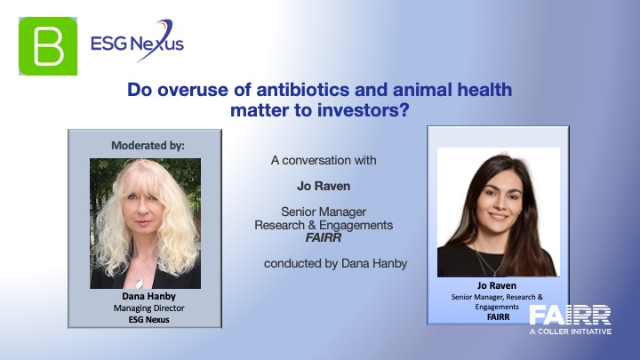The problem of Antimicrobial Resistance (AMR) is not new. Over five years ago, Professor Dame Sally Davies, UK Chief Medical Officer said, “We have reached a critical point and must act now on a global scale to slow down antimicrobial resistance”. Excessive and unnecessary use of antibiotics in agriculture is one of the key factors contributing to this crisis. Yet, when talking about the animal agriculture sector, investors tend to focus on emission reduction, deforestation, and recently also alternative proteins. AMR is a systemic global risk to public health and the economy. The estimated cost in terms of lost global production could reach USD $100 trillion by 2050 if we do not take action. So what do investors need to know about it? - What are the risks of antibiotics and other antimicrobials in animal agriculture? - How does the manufacturing, marketing and sales of antimicrobials catalyse these risks? - How to assess portfolio exposure to antibiotics? - What is the investor case for engagement? - What are the challenges in the value creation chain? Join us to discuss these and many more questions with Jo Raven - Senior Manager, Research & Engagement, FAIRR, the co-author of “Feeding Resistance – Antimicrobial stewardship in the animal health industry” Moderated by Dana Hanby – Managing Director – ESG Nexus The FAIRR Initiative, which was founded by Jeremy Coller in 2015, is a collaborative investor network focusing on environmental, social, and governance (ESG) risks and opportunities in the global food sector. It is currently supported by investors and asset owners with over $45 trillion in combined assets . Through cutting-edge research, FAIRR helps its members to navigate the risks posed by an increasingly vulnerable animal protein sector and enables them to exercise their influence as responsible stewards of capital.
 Presented by
Presented by